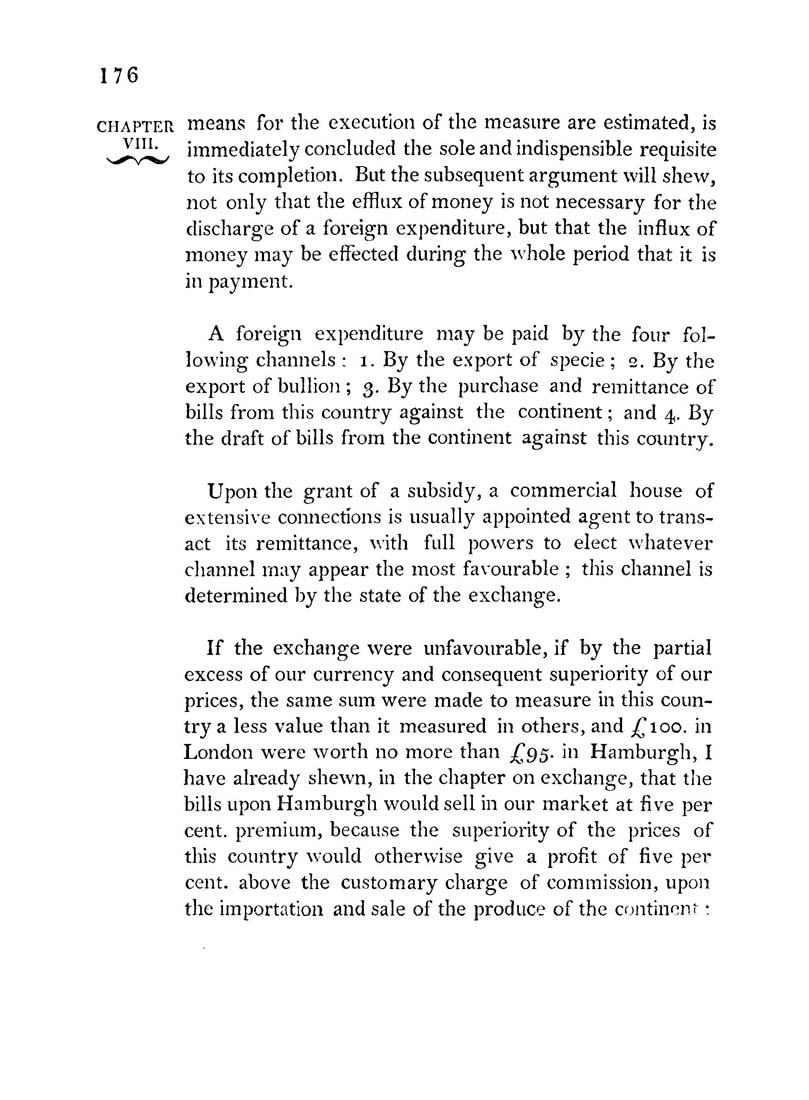176
CHAPTER means for the execution of the measure are estimated, is
^^^^* immediately concluded the sole and indispensible requisite
to its completion. But the subsequent argument will shew,
not only that the efflux of money is not necessary for the
discharge of a foreign expenditure, but that the influx of
money may be effected during the w^hole period that it is
in payment.
A foreign expenditure may be paid by the four fol¬
lowing channels : i. By the export of specie ; 2. By the
export of bullion ; 3. By the purchase and remittance of
bills from this country against the continent; and 4. By
the draft of bills from the continent against this country.
Upon the grant of a subsidy, a commercial house of
extensive connections is usually appointed agent to trans¬
act its remittance, with full powers to elect whatever
channel may appear the most favourable ; this channel is
determined by the state of the exchange.
If the exchange were unfavourable, if by the partial
excess of our currency and consequent superiority of our
prices, the same sum were made to measure in this coun¬
try a less value than it measured in others, and jTioo. in
London were worth no more than £g5^ in Hamburgh, I
have already shewn, in the chapter on exchange, that the
bills upon Hamburgh would sell in our market at five per
cent, premium, because the superiority of the prices of
this country w'ould otherwise give a profit of five per
cent, above the customary charge of commission, upon
the importation and sale of the produce of the continent t
|








